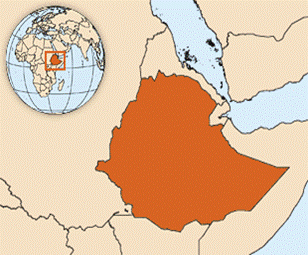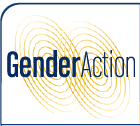  PROGRAMS & THEMES: Gender, IFIs and the Global Food Crisis
 Case Study:
Ethiopia
Download the case study (pdf, 494kb)
Poor, rural Ethiopians, the majority of whom are women and girls, experience chronic food insecurity. Despite decades
of agricultural investments from international finance institutions (IFIs), overall productivity in Ethiopia's agriculture sector has stagnated, leaving 8.3 million Ethiopians "more or less perennially dependent on food security programs, and several million more [who] are susceptible to food insufficiency in the event of adverse climatic
shocks" (World Bank, 2008). Although the World Bank (WB) has invested a total of $2.5 billion in agriculture and food security projects in Ethiopia since 1970, a 2010 WB project appraisal stated that "the capacity of [Ethiopia's]
agricultural institutions is still weak," "yields remain low, and many geographical areas have unexploited potential
for productivity growth." The WB noted that Ethiopia’s poor have also suffered disproportionately from the global
economic crisis, as "the price of goods consumed by the poor is estimated to have risen by 78 percent in urban
areas and 85 percent in rural areas" between 2008-2010 (2010). Households are often forced to fulfill basic food
needs by selling assets, reducing the number of meals eaten per day, or borrowing food or money (FAO, 2009).
Ethiopian women and girls bear the greatest burdens due to food insecurity, since they have a "substantive productive
role in the rural sector, including participation in livestock maintenance and management, crop production and
marketing of rural produce" (Ethiopian Ministry of Foreign Affairs, 2010).
Gender Analysis Findings
This case study applies Gender Action's Essential Gender Analysis Checklist to four active IFI projects in Ethiopia
that focus on agriculture, land management and nutrition. Totaling $384 million and funded by the WB, none of
these projects embrace a gender rights perspective or analyze differential impacts on
men and women, boys and girls. Two out of the four projects discuss gender equality. The WB's private sector arm, the International Finance Corporation (IFC), also
invests in Ethiopia: in 2010, the IFC extended a "risk-sharing facility" worth up to $10 million to Ethiopia's Nib International
Bank to increase the number of loans offered to 70 coffee farmer cooperatives. Although the IFC claims
that its focus on agribusiness and industry benefits small and medium enterprises by "helping them access finance"
(2010), small-scale and subsistence farmers - the majority of whom are women - are unlikely to benefit
from such large-scale investments. The African Development Bank has also invested in agriculture projects in Ethiopia,
but its most recent agriculture project closed in 2010.
|
